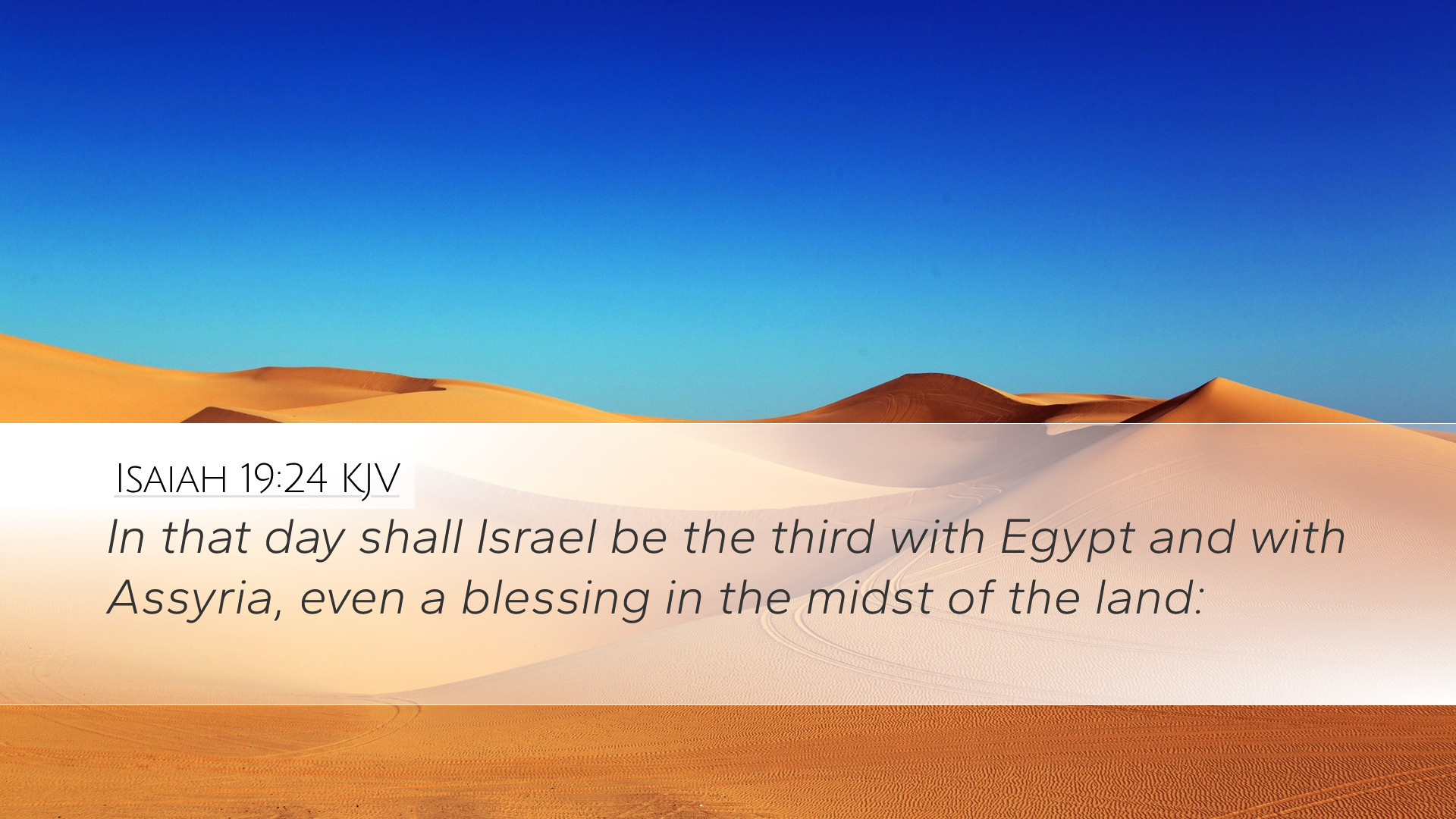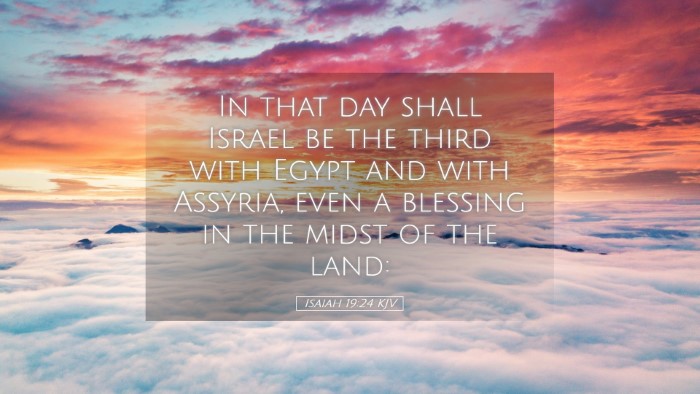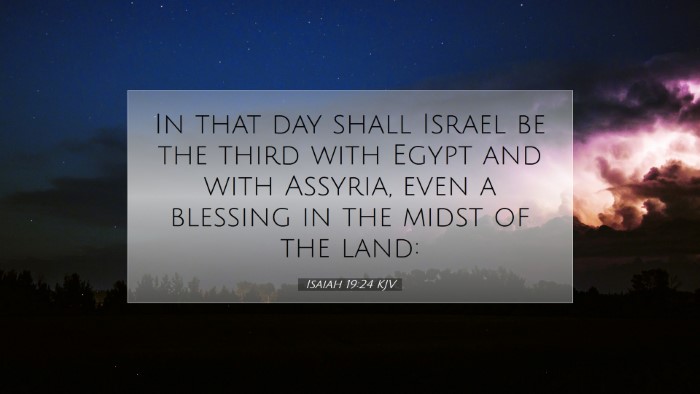Commentary on Isaiah 19:24
Verse Context: Isaiah 19:24 states, "In that day Israel will be one of three with Egypt and Assyria, a blessing in the midst of the land." This verse speaks of a future time of reconciliation and unity among nations historically in opposition.
Key Themes and Analysis
-
Future Hope of Unity:
This verse portrays a vision of unity where Israel, Egypt, and Assyria, which represent nations of different backgrounds and historical enmities, come together in harmony. The notion of Israel being one of three signifies a lifting of divisions and barriers.
-
Divine Blessing:
The phrase "a blessing in the midst of the land" indicates that the harmony among these nations is not merely for political reasons but stems from divine favor. Here, God's blessing is central to the realization of peace and cooperation.
-
Messianic Undertones:
Many scholars interpret this prophecy as having a Messianic aspect, anticipating a time when the Messiah will bring about such reconciliation. The unity described in this passage speaks to the overarching plan of redemption that looks forward to New Testament fulfillment.
Insights from Public Domain Commentaries
Matthew Henry's Commentary
Matthew Henry emphasizes the significance of this verse in portraying the coming restoration of Israel. He notes that God's purpose includes the unification of people who were once enemies. This reflects the broader theme of God's providence and grace in reconciling His creation. Henry reads this passage as a triumphant promise that God will ultimately exalt His people and bring them peace, showing that His sovereignty transcends national boundaries.
Albert Barnes' Notes
Albert Barnes highlights the paradox of the Lord's kingdom, where adversaries become friends. He comments on the historical context, noting that Egypt and Assyria were often foes to Israel, yet the prophecy indicates that they will share blessings together. Barnes underscores that this reconciliation is envisaged in the context of the covenant God made with His people, indicating an eschatological vision where all nations recognize the sovereignty of the one true God.
Adam Clarke's Commentary
Adam Clarke provides insight into the cultural dynamics at play in this prophetic vision. He notes that the coming together of Israel, Egypt, and Assyria signifies a future time where the former hostilities will be replaced with respect and mutual acknowledgment. Clarke draws attention to the indicators of a shift in spiritual allegiance, suggesting that the blessings mentioned are not merely material but speak fundamentally of spiritual renewal. The involvement of Egypt and Assyria alongside Israel points to a wider, inclusive scope of God's redemptive plan.
Theological Implications
-
The Nature of God’s Kingdom:
This verse illustrates that God's kingdom is inclusive and transformative. The unification of previously hostile nations indicates that God's redemptive work transcends human conflict and division.
-
Hope for Nations:
Isaiah 19:24 serves as a reminder of the hope that is available to nations today. In contexts of war and strife, believers can draw encouragement from the promise of restored relationships and peace through God’s intervention.
-
Call to Action for Believers:
The unity expressed in this prophecy should inspire the Church to pursue reconciliation and peace within its own context. The Christian community is called to be a reflection of this prophecy through love and cooperation that transcends cultural and historical barriers.
Conclusion
Isaiah 19:24 encapsulates a powerful vision of hope and restoration. Through insights drawn from classical commentaries, it becomes evident that this verse speaks not only to the historical context of the nations involved but also to the broader narrative of God's redemptive plan. It invites contemporary readers—pastors, students, theologians, and Bible scholars—to reflect on the implications of unity, blessing, and reconciliation as central tenets within their faith and ministry. Ultimately, this passage urges us all to look forward with expectation to the fulfillment of God’s promises, embracing a vision where divisions are reconciled through His transformative power.


